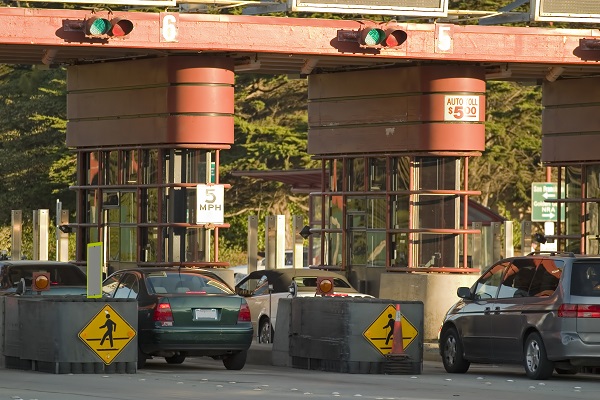 In a 2-1 decision, the U.S. Court of Appeals for the Ninth Circuit held that a putative class action against state entities and a private contractor for allegedly collecting and sharing personal data without authorization was essentially a local controversy and was therefore correctly remanded to state court under an exception in the federal Class Action Fairness Act (CAFA).
In a 2-1 decision, the U.S. Court of Appeals for the Ninth Circuit held that a putative class action against state entities and a private contractor for allegedly collecting and sharing personal data without authorization was essentially a local controversy and was therefore correctly remanded to state court under an exception in the federal Class Action Fairness Act (CAFA).
Accordingly, the Ninth Circuit affirmed the ruling of the trial court remanding the matter to state court.
A copy of the opinion in Kendrick v. Conduent State and Local Sols. is available at: Link to Opinion.
The plaintiffs sought to maintain an action in state court on behalf of a class of users of a bridge against two entities of the State of California and a private company that contracted with the state entities to operate the bridge’s toll system.
The plaintiffs’ principle claims alleged the defendants violated the California privacy statutes prohibiting collection of personal data when they collected personally identifiable information from people driving over toll bridges and then shared the information with various unauthorized third parties.
The company removed the action to federal court under CAFA. The plaintiffs then moved to remand arguing, among other things, that removal was precluded under 28 U.S.C. § 1332(d)(5)(A) because the company was acting on behalf of the state even though it is a private company.
The trial court concluded that the company qualified as a state entity because it was exercising the authority of the state with respect to the alleged violation of the plaintiffs’ privacy rights.
The trial court held that the company had the burden of satisfying section 1332(d)(5)(A) and because the burden was not met, removal was improper. The trial court therefore remanded the matter to state court.
The company then appealed.
As you may recall, under CAFA, a trial court shall have jurisdiction over a class action when: (1) the amount in controversy exceeds five million, and (2) any class member is a citizen of a state different from any defendant. 28 U.S.C. 1332(d)(2).
However, CAFA creates an exception from federal court jurisdiction for cases targeting state, local and other government entities that may claim immunities. See 28 U.S.C. § 1332(d)(5)(A).
On appeal, the company argued that the trial court erred because it relied on 42 U.S.C. § 1983 case law to determine that it was a state actor, and that the trial court failed to address the language of CAFA’s statutory exception relating to “other governmental entities against whom the trial Court may be foreclosed from ordering relief.”
The company’s position was that it was a private entity outside the scope of 28 U.S.C. § 1332(d)(5)(A). It further “accurately point[ed] out that Section 1983 cases are not controlling because the § 1983 state actor analysis looks to an actor’s role and conduct while the CAFA inquiry goes to the nature of the entity itself.”
Thus, the company argued, the “trial court’s exclusive reliance on § 1983 was not appropriate,” rather the “issue is whether [the company] may be considered an instrumentality of the state.”
The Ninth Circuit disagreed, noting that the trial court’s “analysis, however, also focused to some extent on the relationship between [the company] and the state entities ultimately responsible under California law for collecting bridge tolls. [The company] is an entity acting on behalf of the state to perform toll related functions required by state statute.”
As you may recall, the Eleventh Amendment of the United States Constitution provides that “[t]he Judicial power of the United States shall not be construed to extend to any suit in law or equity, commenced or prosecuted against one of the United States by Citizens of another State, or by Citizens or Subjects of any Foreign State,” which means private individuals may not sue non-consenting state entities in federal court.
Moreover, the Ninth Circuit noted, the state need not be named as a defendant, rather “[t]he Supreme Court has held that ‘the reference to actions ‘against one of the United States’ encompasses not only actions in which a State is actually named as a defendant, but also certain actions against state agents and state instrumentalities.’”
“To determine whether an entity is able to invoke such immunity our Court has said we generally look to a number of factors: (1) whether a money judgment would be satisfied out of state funds, (2) whether the entity performs central government functions, (3) whether the entity may sue or be sued, (4) whether the entity has the power to take property in its own name or only the name of the state, and (5) the corporate status of the entity.”
In reviewing those factors, the Ninth Circuit ruled that the company “satisfies the second factor of performing a central government function and it has not asserted that it lacks any of the other characteristics,” but the “record does not reflect whether it may satisfy the other factors.”
Moreover, “the Mitchell factors are not particularly useful when applied to a private entity because a private entity cannot be an arm of the state when the relationship to the sovereign is by contract only,” and “[o]ur case law provides no clear answer as to whether [the company] qualifies as a governmental entity within the meaning of CAFA.”
Nevertheless, the Ninth Circuit continued, “[w]e need not decide whether the trial court erred in remanding on the ‘other governmental entit[y]’ ground pursuant to § 1332(d)(5)(A) because there is a further justification for remand. The plaintiffs correctly contend that the result is required by provisions of CAFA calling for local actions to be heard in state court. The local controversy exception is one of several exceptions to CAFA removal jurisdiction.”
Under this exception, “a trial court is required to decline jurisdiction over a class action when: (1) more than two-thirds of the proposed plaintiff class(es) are citizens of the state in which the action was originally filed, (2) there is at least one in-state defendant against whom ‘significant relief’ is sought and ‘whose alleged conduct forms a significant basis for the claims asserted’ by the proposed class, (3) the ‘principal injuries’ resulting from the alleged conduct of each defendant were incurred in the state of filing, and (4) no other class action ‘asserting the same or similar factual allegations against any of the defendants’ has been filed within three years prior to the present action.”
In analyzing these factors, the Ninth Circuit determined that “[m]ost of these requirements are met.”
In so ruling, the Court held that “[t]his is essentially a dispute between those who use the bridge to travel between Marin County, California and San Francisco, California, and defendants who are charged with operating the bridge on behalf of the State of California. The trial court properly ruled that the case against [the company], a toll collector, belongs in state court with the California entities that manage the bridge’s maintenance and operation.”
Accordingly, the ruling of the trial court was affirmed.


